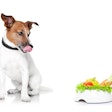
Both pet and human food consumers have expressed increasing concerns over ingredients made from genetically modified organisms (GMOs), such as herbicide-resistant corn, since the products were introduced two decades ago. On July 14, the US House of Representatives passed a measure that mandates labeling of products that contain GMOs. The legislation already passed in the Senate and now awaits the signature of President Obama to become law.
Leah Wilkinson, vice president of legislative, regulatory and state affairs for the American Feed Industry Association (AFIA), issued a statement in support of the legislation, which was sponsored by US Senator Debbie Stabenow (D-MI) ranking member of the Senate Committee on Agriculture, Nutrition and Forestry, and Committee Chairman Pat Roberts (R-KS).
AFIA thanked the House of Representatives for its quick and positive response to the Senate amendment to the House amendment to S. 764, known as the Roberts-Stabenow agreement. Wilkinson stated that the passage of this legislation marked a monumental win for all, both industry and consumers, in the discussion on food labeling.
Wilkinson said that the AFIA is pleased the confusion surrounding animal food products will be minimized by requiring disclosure for human food only. Products derived from animals fed GMO ingredients are also not required to display a label. State preemption in the bill does apply to all food, the term food encompassing both human and animal by federal definition, thereby ensuring one national standard.
This decision proves Congress understands the need for a national standard, not a patchwork system, said Wilkinson, when it comes to those supplying food and animal feed, and those purchasing it.
However, exactly how with agreement will affect the pet food industry is still unclear. Some pet food manufacturers already label their products as GMO-free, and it may pay off in sales. In a study in fall 2015 that included 3,562 US and French consumers, ages 18-65, who own at least one dog or one cat, Nielsen found that 33 percent of the US pet owners ranked non-GMO among their top three of 10 most important health-related pet food claims.
Ultimately, 48 percent of the pet owners surveyed said they would be willing to pay more for non-GMO products than for any other claim listed.
















